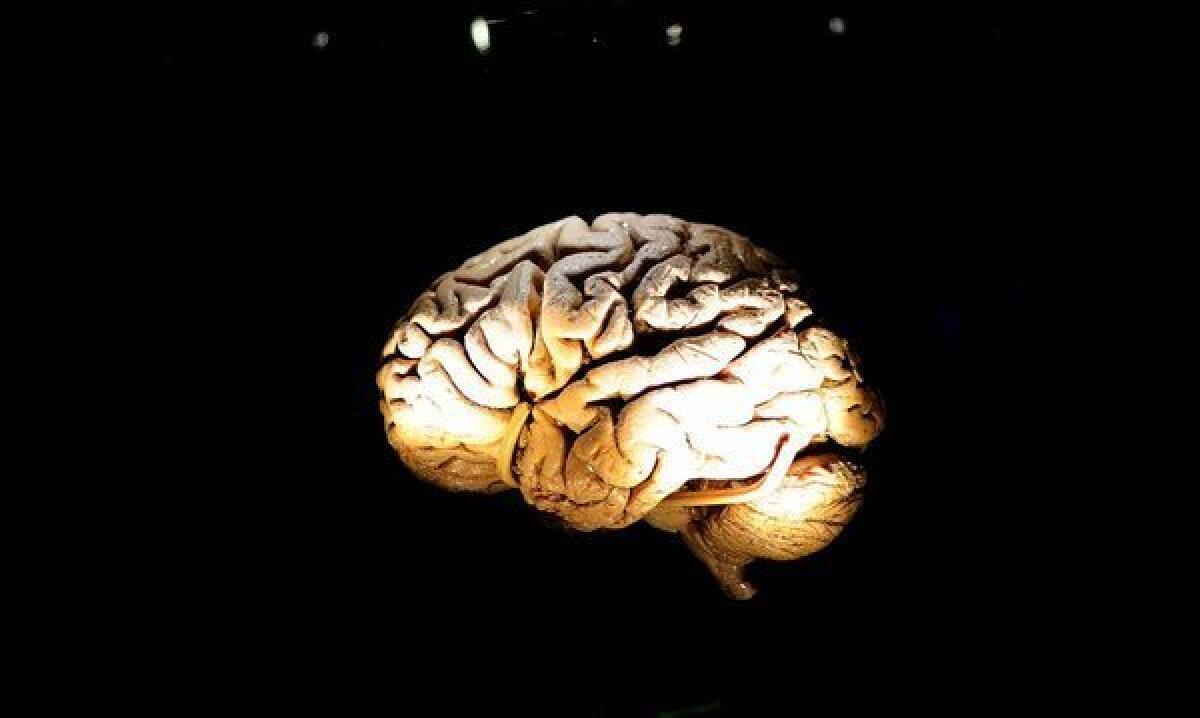Concussions: Even one can change the brain, study finds

Even a single concussion appears to cause changes in the structure of the brain that may make cognitive problems and depression a higher likelihood, a new study has found.
The study, which used magnetic resonance imaging to compare healthy subjects’ brains with those of patients a year after a mild traumatic brain injury, indicated that those with such injuries had shrinkage in brain regions that are key to memory, executive function and mood regulation.
The study, published online in the journal Radiology on Tuesday, is the first to show that even a single concussion can leave measurable scars on the brain. It used three-dimensional MRI scanning to measure the brain volume of 28 recent concussion victims and 22 matched controls. A year later, researchers conducted the same scans of 19 patients with mild traumatic brain injuries and 12 of a healthy control group.
Although the atrophy in the brains of the concussion victims was “global” -- it affected the brain’s overall volume -- it was particularly pronounced in the anterior cingulate and the precuneal region. The anterior cingulate appears to serve as a switchboard for connecting the areas of the brain that are crucial to memory, attention, judgment and higher-order reasoning. Altered activity in the precuneus has been linked to depression, anxiety and post-traumatic stress disorder.
“This study confirms what we have long suspected,” said the study’s lead author, Dr. Yvonne W. Lui, neuroradiology chief at New York University’s Langone Medical Center. After a mild traumatic brain injury, “there is true structural injury to the brain, even though we don’t see much on routine clinical imaging,” she said.
That finding could help those who have enduring symptoms after a concussion understand that there are likely “biological underpinnings” that explain their problems, she added.
For all of the increased focus the injury is getting, concussions remain mysterious to physicians: Patients who never lose consciousness may suffer a life-threatening crisis of bleeding in the brain, or have lasting cognitive problems. Others whose traumatic brain injury seems severe recover without lingering effect. CT scans, which are most widely used in emergency departments to evaluate concussions, are often poor indicators of the severity of brain injury with head trauma.
A second study, presented Tuesday at the American Academy of Neurology‘s annual meeting, suggests that MRI might be used to detect differences in the post-concussive brain that would lead to better diagnosis and treatment.
The study found that, among concussion patients whose early brain scans suggesting a bleed -- about 40% of the 256 patients researchers enrolled -- about one-third had signs of tearing and shearing within the brain’s white matter -- the dense network of fat-covered cables that carry electrical signals between the brain’s hemispheres and among regions.
These injuries appeared as “tube-shaped” on MRI images, and where they were present, injury was more likely to extend into adjacent areas, including the brain’s gray matter, the study said.
The researchers who presented the new work -- led by Dr. Gunjan Parikh of the National Institutes of Health’s Neurological Disorders and Stroke Institute -- surmised that these tube-shaped lesions might be the red flag that helps identify concussion patients whose injury is more severe.







